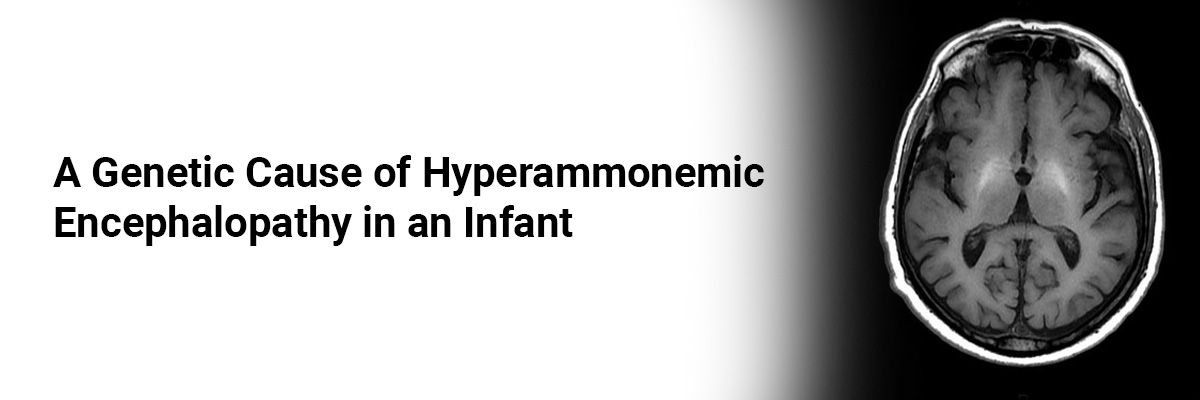
 IJCP Editorial Team
IJCP Editorial Team
A Genetic Cause of Hyperammonemic Encephalopathy in an Infant
Carbonic
anhydrase-VA (CA-VA) deficiency is a rare autosomal recessive disorder
resulting from a homozygous mutation in the CA5A gene. With only 26 reported
cases, 71% are from the Indian subcontinent. CA-VA deficiency affects
bicarbonate supply for mitochondrial enzymes, impairing urea cycle, TCA cycle,
and gluconeogenesis. The condition manifests as hyperammonemia,
hyperlactatemia, and ketonuria.
A previously
healthy 3-month-old girl presented with a one-day history of vomiting,
lethargy, and a generalized seizure. She had no fever or loose stools.
A thorough history
revealed that the baby was born to non-consanguineous parents.
The child exhibited
encephalopathy (Glasgow Coma Scale: E2V1M4), effortless tachypnea (respiratory
rate: 72/min), and moderate hepatomegaly on examination. Central nervous system
(CNS) examination revealed normal tone.
Initial
investigations showed normal blood counts, sugar, electrolytes, negative
C-reactive protein (CRP), hyperammonemia (460 µmol/L), metabolic acidosis (pH:
7.36, pCO2: 7.2 mmHg, HCO3−: 8 mmol/L), lactate: 8.3 mmol/L (normal range:
0.7–2.1), ketonuria (4+), elevated aspartate aminotransferase (AST) - 135 U/L,
and alanine transaminase (ALT) - 85 U/L.
The patient
underwent ventilation, received fluids, sodium benzoate, carnitine, and
underwent peritoneal dialysis with bicarbonate-based fluid.
Within 36 hours,
her sensorium improved, ammonia levels dropped to 17 µmol/L, and lactate
normalized to 2.5 mmol/L. MRI brain, plasma amino acids, acyl carnitine, and
urine organic acids results were normal.
The infant was discharged
on sodium benzoate and carnitine. Genetic testing confirmed a pathogenic
homozygous missense mutation in exon 6 of the CA5A gene, indicating carbonic
anhydrase VA (CA-VA) deficiency. At 1.6 years old, she remains biochemically
and developmentally normal.
Low pCO2 in blood gas, deviating from expected compensation, is indicative of CA-VA deficiency. Long-term treatment involves sodium benzoate, carnitine, prompt recognition, and treatment of metabolic crises, while avoiding specific medications. The prognosis is generally favorable, with one-third experiencing recurrent metabolic decompensation and the majority achieving good neurological outcomes, possibly due to overlapping CA-VB function.
Source: Ganesh R, Karthik Narayanan R. Indian Journal of Pediatrics. 2024
Jan;91(1):88-.

IJCP Editorial Team
Comprising seasoned professionals and experts from the medical field, the IJCP editorial team is dedicated to delivering timely and accurate content and thriving to provide attention-grabbing information for the readers. What sets them apart are their diverse expertise, spanning academia, research, and clinical practice, and their dedication to upholding the highest standards of quality and integrity. With a wealth of experience and a commitment to excellence, the IJCP editorial team strives to provide valuable perspectives, the latest trends, and in-depth analyses across various medical domains, all in a way that keeps you interested and engaged.





















Please login to comment on this article